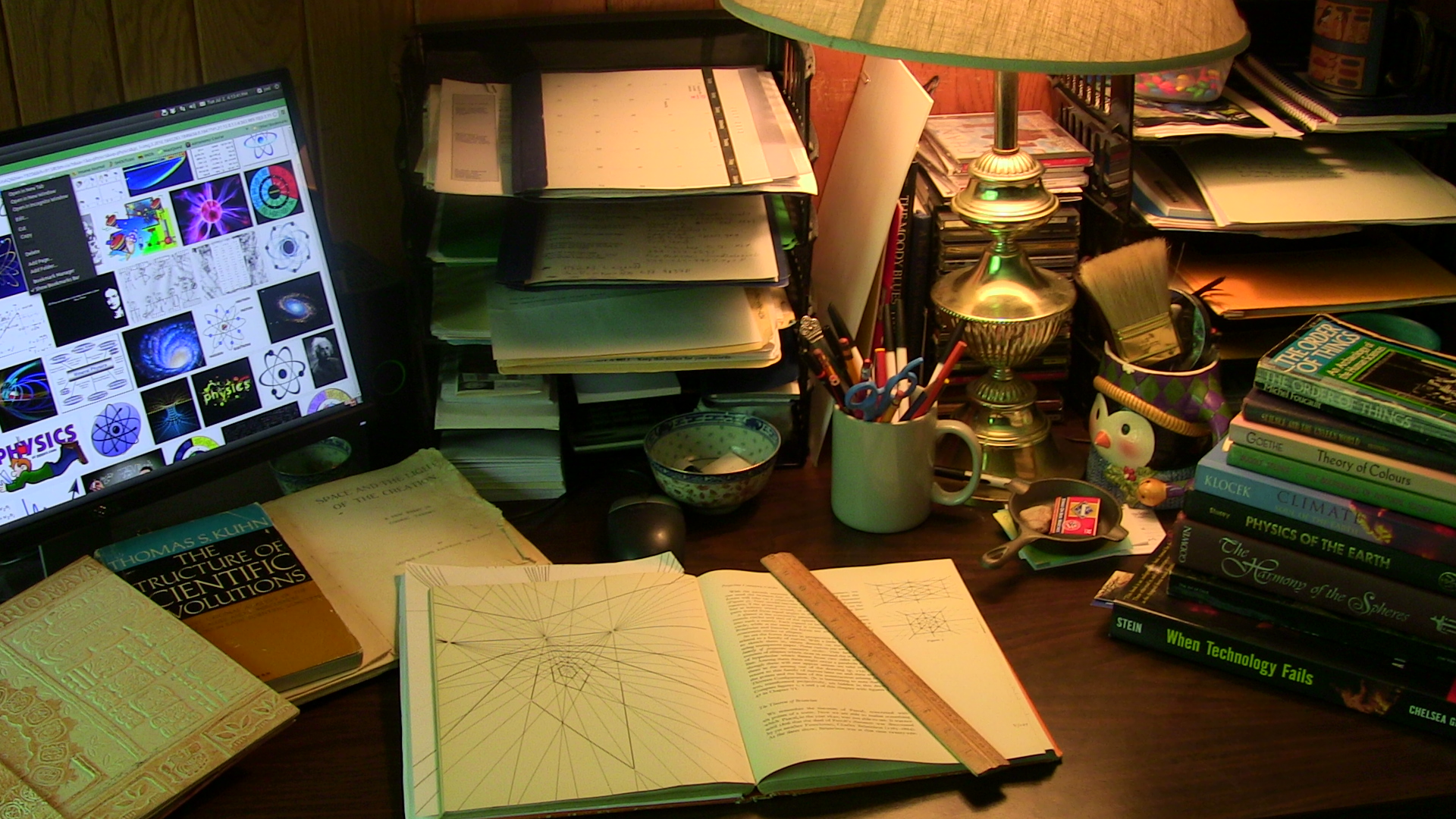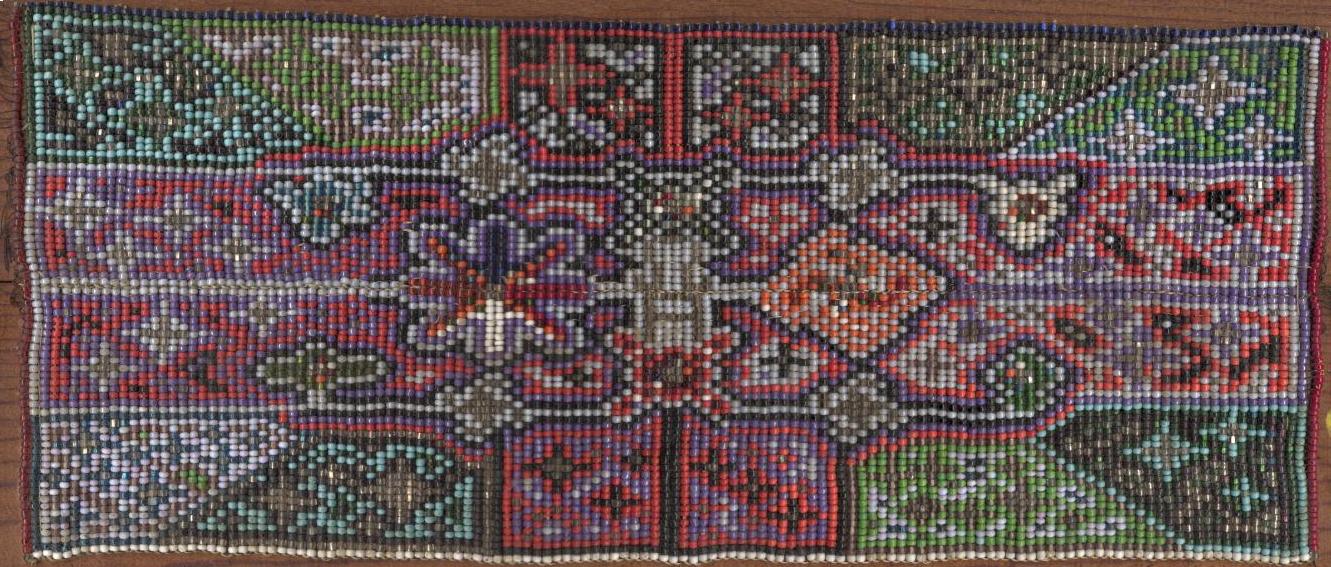We are the principle cooks in the
stew-pot of our own life. We have to eat the consequences of our
choices. Don't worry. Emerson wrote: "In self trust all
virtues are comprehended" Yet, as we all know, there are a
lot of aspects of our lives we don't and can't (and perhaps shouldn't)
control. Leave some space for the other cooks in your individual
biography. You did have a mother, didn't you?
Teachers? Friends? Lovers? We are not alone in our
journeys, unless we want or need to be. In a very real sense,
each biography is its own holy grail.
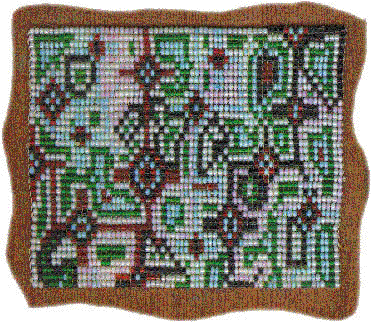
The human being dances into the death of the future,
intimately interdependent with silicon. Dare
we leave behind the natural world in our
rush for technological evolution? Are
not we ourselves fully natural?
Do we want to end up saying: We are Borg?
or ...
"We are stardust
Billion year old carbon
We are golden
Caught in the devil's bargain
And we've got to get ourselves
back to the garden"
[ Joni Mitchell: Woodstock
]
"the devil's bargain": We are light and
dark. Have consciousness, self-consciousness, a sub-conscious and
an unconscious. Thoughts, Feelings, and Impulses of Will.
In Star Wars episode V, Luke goes underground, meets Darth Vadar and
when Vadar's mask breaks open it is Luke's face that is inside.
In one way or another everyone has dark parts, many of which can and
should be called: addictions. To be in love, for example, ... To
be in love with something, and to need something, on occasion
desperately, is very very human. We can be addicted to
sex, love, drugs, alcohol, shopping, computer games, food, power,
wealth - And, when our craving is too much, then we have to ask if we
are in control of our lives or not. Some comments on the Twelve Steps,
from a certain point of view.
{did we manage
to forget there is both
a cat and a dog
now lounging on the top of the bar?}
Later investigations by psychics and mediums would reveal that the man
with the rain cloud over his head
was a ghost-researcher for the NSA, who came to “the bar at the
beginning of the world”
in order to find sources for seeing into the future and the past.
The cat was a plant by the CIA,
and actually a zombie, while the dog worked for the FBI, trained
to relieve himself in specific places to mark their territory.
The Fool had just been handed the dog, right before he entered the bar,
by Clea, who was a disciple of Dr. Strange.
Clea told the Fool that the dog was a familiar, often used by
witches during the trials in Salem.
Not only that, reported Clea, but the dog had been Clara Barton
in its most recent human incarnation.
From the black-hole in the former restroom doorway, there emerged a
young man who sat down next to the Wizard,
and announced to all that he was a stringer for the San Jose
Mercury News, looking
for information implicating the Federal Government in Washington,
in a plot to use Country Music to do psychological propaganda
operations against the American people.
The hacker asked the reporter why he thought this was news.
The bartender made a circling motion with her left hand, and there then
appeared in that hand a large joint, already lit.
The zombie cat started to cough up a hairball.
The wizard put his hat on and faded away from their presence, in a
rather odd way.
He seem to grow smaller and smaller from all directions, until with a
slight “pop” he was gone.
With him went his staff, although there then appeared in the empty
space a kind of white object that floated down in the air,
coming to rest on the bar, revealing a business card, which the
Fool read aloud.
“Stranger in a Strange Land Magical Services: call 23232323 to make an
appointment”.
{does the dog eat the cat’s hairball?}
One of the virtues of this App is the number of choices offered.
There is not One Way, there is only Your Way. The following are a
variety of ingredients from which to create your personal stew.
Try them out. Discard as necessary. Revisit later if
desired.
One of
the more curious facts of our mental existence is sometimes called:
discursive thinking. We talk to ourselves in our own mind.
Usually we have a particular worry or subject matter for this internal
discourse. Suppose you just focused on a single thought, or
conception?
For example: "I". We use this term all the time when we
speak. We also use its relatives, the various personal pronouns,
such as: you, me, we, us
it, them theirs, ours, yours, and so forth. What is the "object"
of those terms? In general we have the idea of our having a self
of our own,
and that each individual is also a "self". Not a meat organ - a
brain - but an ego, or an identity. We can't but say, when we
slam our finger in a door:
"oh shit, "I" just smashed "my" finger in a door". So sit
quietly, and in your mind, using your inner voice, say the various
personal pronouns,
and notice what you "think-about" when you say them. That
noticing what "you" "think" is the tricky part. "You" are
simultaneously the
thinking subject, and at the same time the object of "your" own
thinking. If you have drunk the Kool-Aid of too much Eastern
"thought",
you might think that the "I" is not real. That's a tradition, and
an assumption, that is no longer true. But the question of
subject and
object brings us right into the heart of something very special.
It is worth applying a lot of your own thought to that question.
For details on that "Eastern problem", there is this: "West and East: or
Wendt’s “critique” of Osho’s critique of Rudolf Steiner"
If you want to further develop the quality of awake thinking about
language and grammar usages, spend some time
contemplating the "parts" of speech: nouns, verbs, adverbs, adjectives,
pronouns, prepositions, articles etc. See if
your subjectivity can "taste" the differences among these parts of
speech. Try to write (organize) the parts
of speech according to their abstract vs. concrete nature. Are
articles more abstract than verbs and nouns?
What does the difference "feel" like?
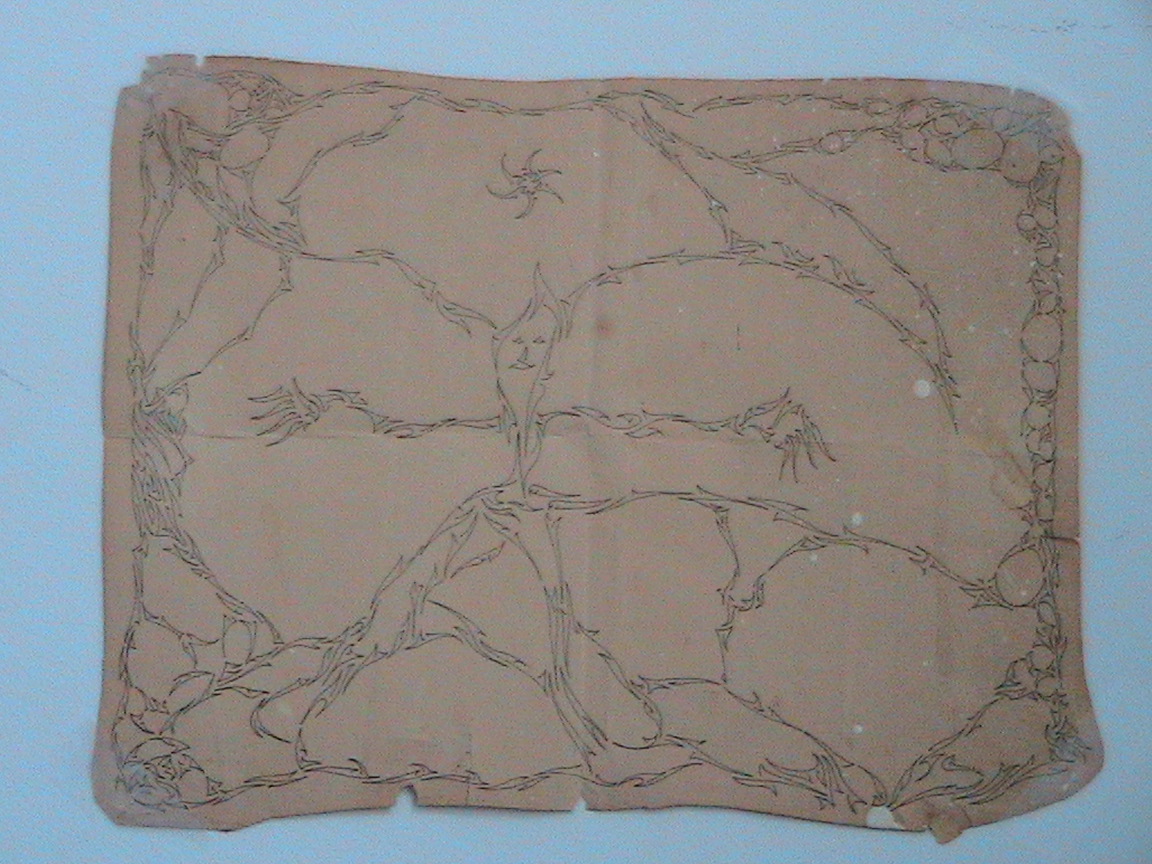
self portrait by the author of this
App, from 1973 or so,
where after a rather unusual spiritual experience I tried
to teach something I called: Martian Meditation. I failed.
Regular Books: (some have Kindle versions)
There are millions of books, but not all of them belong to this
journey. Keep in mind that for a long time other travelers have
been at work and may know a great deal we can find inspiring and
useful. All the same don't put your own thinking in orbit around
their ideas. Just use them for inspiration, and for an
introduction to some details that spark your interest. Not one
of us knows everything. I've selected some of my favorites, with
comments. If you want to have just a few, these are among
the very best, with the added virtue that these lead to the real
science of the future. [There are thousands of books that could
be read, if we want to learn to think free of the dogmas of scientific,
religious, and artistic fundamentalism, while remaining completely scientific
in the best sense of that term: logical, coherent, precise, careful,
truth seeking; and, spiritual in
the best sense of that term: imaginative, playful, artistic, and in awe
of ourselves, and all of life. All of us, in a way, are mad
scientists of the kind like the character Walter Bishop in the TV
series Fringe.
Delighted as much by the gross as the unimaginable. Lest ye
become again as little children.]
These
books are aspects of the other-world (spiritual) nature of the efforts
of different thinkers. They are excellent examples of this
difference,
and as well important factual matters of which to become aware.
They contain a new and living understanding of outsides and insides,
of subjectivity and objectivity in action.
The
Dispossessed, by Ursula K. LeQuin. A novel: Beautiful
writing, deeply philosophical, great story, and excellent observations
of the necessary elements for a future Society of Free Individuals.
A
Theory of Knowledge Implicit in Goethe's World Conception, by
Rudolf Steiner (his second book, published in 1886 when he was only age
25 or so). Yes philosophy, but regardless of the current
criticisms by physicists that philosophy has had it day in the sun;
and, while mathematics may be the Queen of the Sciences, philosophy is
the King. Anyone who wants to actually "think", needs to marry
both disciplines. In this book Steiner writes: "It is really the genuine, and indeed the truest,
form of Nature, which comes to manifestation in the human mind, whereas
for a mere sense-being only Nature's external aspect would exist.
Knowledge plays here a role of world significance. It is the conclusion
of a work of creation. What takes place in human consciousness is the
interpretation of Nature to itself. Thought is the last member in a
series of processes whereby Nature is formed." In
a similar light, Emerson wrote, fifty years earlier in 1836, in his
essay Nature: "Nature is the
incarnation of a thought, and turns to thought again as ice becomes
water and then gas. The world is mind precipitated, and the
volatile essence is forever escaping into the state of free thought."
Speaker's
Meaning, and Worlds
Apart, by Owen Barfield. Barfield was an "Inkling", and a
friend for years of J.R.R. Tolkien, C.S. Lewis, and Charles
Williams. Barfield is a master of the knowledge of the
evolution of consciousness, a fact essential to not only understanding
our present and future, but perhaps more crucially our past
The deeper into the past we go, the less the soul and spiritual life of
ancient peoples - their inwardness - is like ours.
Understanding this will change your view of the world, down to its
bedrock. Barfield works here as a philologist - a scientist of
language. Support for this work in the field of Art is found
here: Art
and Human Consciousness, by Gottfried Richter. Additional
support is here in the history of science - including the coming
future, Man
or Matter, by Ernst Lehrs, as well as Catching
the Light, the entwined history of light and the mind, by Arthur
Zajonc.
Feel a need for some future mathematics? Physical
and Ethereal Spaces, a brief examination of certain little known
aspects of Projective Geometry, by George Adams.
How about a taste of the future of Chemistry? The
Nature of Substance, Rudolf Hauschka.
The Future of Medicine? An
Introduction to Anthroposophical Medicine: Extending the Art of Healing,
by Victor Bott. And, The
Four-fold Path to Healing, by Tom Cowan.
Institutions: (places and
people to get to know better)
Waldorf Schools:
a product of Rudolf Steiner's genius, and the hard work of thousands of
parents and teachers. Can be a bit goofy on Anthroposophy ...
some schools have too many true believers.
Some cautionary tales from my own research: The Social-Spiritual
Organism of a Waldorf School Community; and Waldorf Charter Schools
in America - some social observations.
Biodynamic Agriculture:
another product of Steiner's genius. Less goofy, ... farmers
having to be more pragmatic and down to earth.
The Bioneers -
cutting edge thinking and learning about nature with a marvelous depth.
The Nature Institute -
remarkable integrative thinking on ongoing work in biology.
All of
such works are fuel for careful thinking. You can pick your
own as well. Each phrase, sentence, and paragraph contains
various types of mental
phenomena. Let me describe some examples with which you should
become very familiar. "Mental pictures", such as the image
we have of a particular book
we see through the senses. "Generalized Concepts", such as
the concept of "books" in general, which enables us to see sense
objects that are books and
identify them as such. "Pure Concepts", which are capable
of becoming a metaphor, such as the use of the terms: "the Book of
Nature", that was used
by Goethe in his scientific works. Then there are "Ideas
- Ideos", in the sense of Plato, which are objects in the mental
world, or the world of thought
which are Beings, that are independent of our own conscious
"I". Take material you are reading, and try to notice how
various terms, that
appear as individual words, were united in the mind during reading,
into mental pictures, generalized concepts, pure concepts and perhaps
even ideas.
What is happening here is that you are turning aspects of the world of
your own mind into objects. You the subject are learning to see
mental phenomena as
objects in relationship to which you (your own "I" or spirit) is the
subject. It is kind of like having a natural
instinctive gift and waking up to its presence.
This study is the central act
missing in the "brain" sciences. Those scientists never study
their own mind, which is a very bad mistake.
{cosmic
regurgitation and its wondrous effects}
The jukebox, in a corner away from the bar, but by the door, and not
playable for many years, comes on by itself.
It morphs into a new shape, and becomes a combination video and DVD
player, keeping at the same time the part
that lists what is available (and numbers them), and the small
keyboard to punch in your selection’s number.
Over time the items on the list change, but basically right now the
list is mostly of zombie shows,
whether film, or TV. It starts running the original “The
Returned” on its large screen.
The one that was on Sundance, and was French with subtitles.
This film's haunting music attracts the attention of the fool, whose
face turns sad,
after which he begins to fade away, getting more and more indistinct
until he completely vanishes.
The hacker sips at his cherry Dr. Pepper, and pushes his can of mixed
nuts toward the young reporter in a gesture of sharing.
The reporter asks the bartender for an artisanal beer, and then notices
the odd fact that the bar has Red Bull on tap, and asks for that.
After drinking a full glass down, the reporter heads for the black hole
where the bathroom door used to be,
followed by the cat and the dog.
The hacker then plugs his keyboard to a USB port he finds on the side
of the light-saber, which was still lying on the bar.
The saber comes on for an instant, and the hacker turns into a
hologram, only to quickly dissolve key board and all.
The now client-less bar surrenders in silence to the haunting mood
music of The Returned, and the occasional spoken French.
The bartender starts to clear and clean the surface of the bar, having
already pocketed the gold coins.
{is there a need for more?
of course!}
Going Down - facing
evil in ourselves and in the world,
and: Is evil in fact a useful concept at all?
Here we get into the gritty down to earth aspects of human
nature. Stuff we don't like about ourselves and we
don't like about others. An acquaintance of mine, says in her
book On
Becoming an Alchemist a Guide for the Modern Magician,*** that no
one chooses to do evil, and most everyone sees what they are doing as
good. At this level of self-education and self-exploration, we
have to face the dark inside and outside. The primary point is
rule 7 above: "the Universe loves us
just as we are, and places no demands upon us that we change or become
anything other. The Beatles had it right in the song: Let it Be."
Yet, as rule 8 recognized: "However, our
immortal spirit has the itch to change in itself ... we want to become,
the Universe doesn't demand it, except to the extent we can acknowledge
our personal immortal spirit as an aspect of the Divine Mystery.
The source of wanting to change comes from the divine in our self."
***[I made my own efforts
at providing some substance for the Harry Potter generation - a series
of videos: On
Becoming a Real Wizard. And, no it is not about waving a
magic wand and turning an enemy into a frog. The term wizard
comes from wise-heart and wise head, and modern wizardry is about
actively seeking wisdom.]
Some works of my own that may help.
Keep in mind that we now are going into that area where the situation
gets difficult because we wander near the idea of what is the moral, or
what is the good; and, if we can do those, we can also do their
opposite. Contrary to expectation, the Universe has made it so
that the modern human being, in its current stage of development in the
evolution of consciousness (see Barfield et al above), is able to
freely create their own moral truth. The Universe trusts
us. Which is, as you might guess, rather contrary to the basic
impulses of the three monotheisms: Judaism, Christianity, and
Islam. Historically, the arising of those religions also meant
the destruction of the prior Goddess religions, and the beginning of
the modern patriarchies by which women have now for centuries been
dominated socially by men. Yet, all that is changing ... Western
Civilization is dying, and a whole new human culture is being
born. This is serious stuff. See my videos on the Hopi Prophecy here
... you know those folks whose current elders are alleged to have said:
"We are the people we have been waiting for". Part of the
potential of this App is for people to realize how much their own
choices for personal transformation also have an effect on the future
course of civilization at the beginning of the Third Millennium.
For fun, lets start here:
Sex,
Porn, and the Return of the Divine Feminine.
For all of us sex is a very big deal, so lets not be shy about talking
about it. Also the previously noted wisdom/videos on sex remain
relevant: Misery
Loves Company: the Redemption of Eros. Most of what is in
that set of videos men should study, but it is more likely that women
should study it as a way of learning what to teach to young men
something they very much need, because modern culture doesn't teach
it. A lot of women are aware that many young men behave like
boys. They don't go through the same kind of adolescence as do
women, where for women learning about your feelings and how to express
them is the core. For boys, this is mostly missing, and
fixing/healing this dysfunction is one of the ways women can bring in
more consciously the Return of the Divine Feminine.
Let us also not forget our Elders, for they have lived a lot of life,
and their accumulated wisdom is not to be ignored. Dragon Riders -
the human being in maturity.
Maps to
the mind - after 40 plus years of studying that Books of Life and of my
own Mind, this: Sacramental
Thinking Don't believe what I've written, but use those
essays in that book to suggest some questions to ask yourselves.
Nature too has dark and light: Electricity
and the Spirit in Nature
And, let us be charitable. If there is a reality to spirit, that
means the older Goddess religions were not all that much based on
flawed thinking as scientific materialism likes to suggest.
Although, the modern religious are perhaps presently stuck in
traditions that are no longer living, see: The Mystery of
Evil in the Light of the Sermon on the Mount; and, by my friend
Stephen Clarke, a fascinating discussion of the flaws in the asserted
opposites of good and evil in Western Civilization (challenging, and
possibly mostly for scholars): "Some
Notes Toward a Resolution of the Dilemma".
Probably
no aspect of modern human existential crises arises outside the
existence in life of moral questions. We cannot live life and not
face them.
All of us have a sense of what is right, and are disturbed when others
do not agree. If we think about the fact of multiple viewpoints,
we might well
appreciate that the existence of moral differences, and religious
differences, tells us what is perhaps one of the great issues
of the Third Millennium. There will be those who gravely dislike
this next "Idea", but modern life is more and more
shaped according to the desire of the Great Mind - the Universe - to
free us from any other moral authority than our own.
My book: The Way of the Fool looks at this
individual moral freedom question from a yet to be known
Christian perspective. It is not the only possible perspective.

"the heart of the matter"
it matters to me
for Matter to be
and that I, to Matter
do matter
If civilization is failing, or undergoing a metamorphosis -
a dying into a new becoming - how do we relate to that?
Meanwhile, watch out for the
Bill Gates Syndrome ... which is:
believing that just because you made a lot of money
it means you know how to fix everything.
Lots of high tech billionaires are falling down that rabbit hole.
See the last Season of
Newsroom on HBO for a story arc about a rich guy who is so in love with
his own
genius, he has no clue what chaos and stupidity he is creating.
{more}
Three men walk into a bar: a wizard, a blackhat hacker, and a
fool. Upon seeing them, again,
the bartender reached under the bar, lifting up an AK-47, and hosed
them into oblivion.
At which point the software governing the virtual environment, opened
some panels in the floor,
and various bots of different shapes and skill sets crawled out to
clean things up.
Back in his office, the ex-lawyer, who had been using the virtual
environment for relaxation and play,
called up his friend Hiro Protagonist, who was one of the major
designers of this aspect of the Metaverse environment,
to advise Hiro there must be some kind of glitch.
Hiro never called the ex-lawyer back. So after a while, he just
played the “game”, as it were,
over and over again, varying the bartender’s responses, and leaving the
software
for the virtual environment to do whatever it wanted to do.
Just like in life, some days were worse, some days better.
{This is never going to end, is it.}
The artifice and agony of politics
Thinking about the moral
questions in politics may well be the most socially important
thinking any of us do. We are capable of various "modes" of
thinking, once we start to
seriously explore our minds. Some names for such modes:
comparative thinking,
associative thinking, warm thinking, cold thinking, heart thinking,
imaginative
picture thinking, thinking-about, thinking-with, thinking-within and
thinking-as.
All such thinking modes are influenced by moods, or feelings.
Such as anger, sadness, joy, fear, antipathy,
sympathy, pain, pleasure, and such cultivated (intentional) moods as
wonder and awe.
Modes and moods combine in the mind in a great variety of Ways.
Notice your own "habits" of mind.
Consider changing some of them. In this sense the mind is an
"instrument" we instinctively know
how to play. Learn to go beyond instinct and play the instrument
of your mind consciously.
In our minds there are capacities of the own will: the attention
and the intention. The attention is
where we direct the mind - what are the "objects" of thought to which
we "attend".
The intention is the reason, moral or otherwise, that we form thoughts.
Play with these capacities. Experiment with them. Learn
from their existence.
While all minds can potentially do all things, your individual mind
will have habits
from a lifetime of dealing with "life". Trust your habits, but at
the same time,
consider whether or not you need/want to continue doing them.
Given that politics also leads us to a great deal of "emotions", I wrote
a special essay for this App on the recent film by Pixar (on emotions) "Inside Out"
If the Universe didn't have a purpose
for the 1% of the 1% they would not exist. Everything has
meaning. Apply the idea of ecology to society - there is a
social-ecology, and everything has its niche. Not to say we are
wrong to want to change things. However, to change society in a
healthy living way may well require we find the wisdom that belongs to
that problem. Mere Ideological solutions don't work. The
wars on Poverty, Drugs, and Terror, are all colossal failures.
Aboriginal people lived in communion with the natural
world, not in dominion over it. But
humanity evolves, and the current primary aspect of our evolution is
the evolution of consciousness itself (see Barfield above, for an
introduction). Our physical evolution is mostly over,
while our spiritual evolution is just now becoming completely in our
own hands. People before the Age of Science were not
idiots. Far from it. They mostly had a different kind of
consciousness. Keep in mind how difficult it would be even today
to build Stonehenge or the Egyptian Pyramids, using the tools they had
available. Maybe there was more going on there than we yet
imagine.
If we picture social changes over time (go here for an introduction to a spiritual
social science), we will discover that as humanity evolved in the
nature of its consciousness, we more and more began to emancipate
ourselves from raw nature. City dwellers are not able to live in
raw nature anymore - they are adapted to something entirely
different. Yes, certain tendencies have gone too far, but how do
we take the next steps? You want to go back to living in caves
and being a victim of the weather? People paying attention are
aware that there have come to be all manner of technical fixes for real
world problems. Our mastery of the nature of matter has not been
a waste of time. Our real problem is not just whether we can
feed, and find water, for everyone, but whether something in our
societies itself is out of whack. Why is there no political will
to do what is obviously right?
Is there a point to present social conditions?
Historical social processes have led to individualization. In
prior conditions of the evolution of consciousness we were less
individual and more easily members of a group. This is, from a
spiritual point of view, such a remarkable situation that I had to
write an over 300 page book about it, that is dense with ideas, and
therefore hard work to read. All the same, it provides knowledge
of matters that are crucial to understand. Not everyone needs to
understand them, but if you want to be a leader into a new human
future, you better trouble yourself to understand this: The Art of God: an
actual theory of Everything. In this book I took the
religious question, drafted it in the form of a "theory", in order to
place it inside the stream of scientific thinking. Scientific
thinking is a very modern and crucial Way of Knowledge, and Religion
and Art need to serve the moral essence of the true
scientific method. However, be advised that a lot of what passes
for science today does not practice the true method. Read this,
by Ronald Brady: Dogma
and Doubt.
In the social ecology of the modern world we can observe concentrations
of wealth. Many would like to see this wealth more distributed,
but the wise evolution of the world didn't do that. The Genius of
History did something else. It takes a certain kind of
"intelligence" to manage wealth. A group wanting to vote on every
decision is about as awkward and clumsy as possible when it comes to
directing complex industrial organizations. Also, ... no one is
perfect. There are no perfect nuns, popes, presidents, CEO's,
bankers, senators, mothers, fathers, children, teachers etc. etc.
etc. Everywhere the incomplete, the psychologically wounded, and
the outrageously beautifully individual.
In my book The Art of God, the point of human to human conflict is
excruciatingly explained as completely necessary. The World is
what It is, and if you want change It then you very much need to
understand Its Ways. For groups, rather than individuals, I've
made another App: Surfing
the Coming Tsunami of Future History: an App
advertising a service.
The tendency to concentrate wealth has been with us since
Pharaohs, Kings, Queens and so forth. The Founding Fathers of
America were an elite. They participated in slavery, and the near
genocide of the Native peoples that were already living here when the
Europeans came. The Old World aristocracies of blood became,
around the time of the founding of America, replaced with aristocracies
of wealth. The New World is meant to be New.
For details go here: Uncommon Sense:
the Degeneration, and the Redemption, of Political Life in America.
("Why play by the rules, when the game is already fixed?")
Then there is this: Economic
and Social Rebellion ("a money debt owed bankers is merely a
number ... while what lives in the hearts of a People is a spiritual
currency of infinitely greater value"). And, this: the grandmother war (why
we need to no longer Consent). With the increasing effect of
the return of the Divine Feminine, social processes are changing
everywhere. We can choose to fight the currents and waves of
history, or to learn to see them, and then surf them into the future.
Remember ... this App is about self-development and self-education.
If you are not up to the work/play of learning the new, the fresh, and
the living, - the truly spiritual, then that's on you.
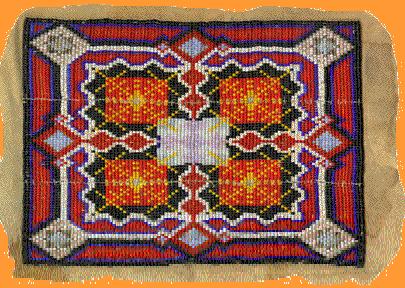
"the invisible Beings of the Four Directions"
{The ex-lawyer
opened up his virtual reality “game” one day to discover it had been
hacked,
by the character of the virtual hacker himself, who appeared to have
become a sentient AI}.
At the commencement of this particular “game”, the fool walked through
the door of the bar and sang the following, in a fairly reasonable
tenor.
Although in terms of melody and mood it seem more like the droning
tones of the
Rains of Castamere from Game of Thrones,
that accompanied the scene known as The Red Wedding:
There is no
proof that the brain “calculates” at all. Brain scientists have simply
imposed ideas, that come from computer science, on the phenomena they
observe with respect to the brain. The brain, which is a living organ,
has no similarities with a mechanical device using electricity and
various kinds of software to make the hardware useful.
Since the dictates of scientific
materialism require matter only explanations for phenomena,
consciousness studies have borrowed from computer science all sorts of
“explanatory metaphors” to tell us what the brain does. The fact is
they don’t know what the brain does, and worse, they never study the
mind (in spite of all of them having one of their own) and a great deal
can be learned by studying our own mind.
Further, having their theory of
evolution (which is not empirical at all - no one has ever actually
observed the transformation of one species into another, for example),
the brain scientist assumes billions of years of evolution can do
anything, including create something the brain scientist fancies to be
true, but does not factually observe.
The human physical body is an exact
metaphorical analogue to the “avatar” (artificially created) bodies
from the movie of the same name, which then can receive the
consciousness from a human - i.e., ... somewhat inexactly the film
imagines what is actually closer to the truth.
Human physical evolution had the task of
creating physical bodies with a sufficiently complicated nervous
system, that the individual divine spark could inhabit this body during
waking. When we go to sleep the divine spark leaves the body. The
nervous system is an “interface” between spirit and matter. This
“interface” took all of physical evolution for the divine powers behind
its nature to create.
We think (today) that matter is all, but
this arrangement of matter with spirit is also a kind of analogue of
the virtual reality we imagine. Except that physical and sense
experience is the “virtual” reality (maya in the older sense of this)
into which the spark is inserted during waking in the physical each
day. The brain is the “interface” for this spirit into the physical
immersion, although the term “interface” is really very horrible.
The nervous system (which actually has
three centers, not just one - brain, spinal column, and solar plexus
including its nerve extensions into the limbs), is built of kinds of
living matter that have sacrificed (renounced) their own intrinsic
nature to serve the divine spark. Nerves, having no ability to heal or
reanimate after they die, are then living matter which is more dead
than normal, allowing consciousness a better “grip”, as it were.
“It matters to me
for Matter to be,
and that I,
to Matter,
do matter.”
When the scientist of consciousness sees
the brain light up in his experiments he makes many assumptions about
what that means, most of which (because they are dependent on his/her
intellect, which unguided by the heart is the dark god within), lead to
errors of perception and thinking. This set of errors will only be
corrected by folks who seriously study their own minds.
The intellect, having created the
computer via rigid mathematical conceptions, then sees in the brain a
mirror of its own nature. To do this the intellect has to discard what
human beings have done and are doing with this tool (the computer),
when in many cases this “use” is driven by impulses of the heart.
{let us now hope, with all
sincerity, this torture of the tale's tail is over}
Oh, and by the Way, just a tidbit of fun, for the seriously curious ...
Suppose the Cosmos - the stellar world - is non-material. That
the "out-there" of what we imagine to be physical galaxies and planets
and black holes and places to go with our star-ships that can travel at
warp speed - i.e. faster than the speed of light ... imagine that this
is exactly what an awake mind does - has contact with intelligences
from outside of our solar system. This is why the ancients all
depicted "creatures" that seemed non-human, and related those non-human
creatures to the starry realm. Our long long ago ancestors
interacted with beings from "galaxies" far far away, and called them
"gods" and "angels" and such because that is exactly what their ancient
consciousness experienced. Again, read Barfield, such as Saving
the Appearances: a Study in Idolatry. Then, or in the
alternative, go here: "The
Misconception of Cosmic Space As Appears In the Ideas of Modern
Astronomy - and as contained in the understandably limited thinking
embodied in the conceptions of the nature of parallax and redshift."
See also, "The
Fermi Paradox Resolved."
Don't want to wait for the universe of Star Wars and Star Trek to
arrive? Study your mind, and while on that trip learn some very
interesting speculative physics contained in novels, two of which we've
pointed to before. In LeGuin's The
Dispossessed, we learn about the question of what if we think about
time as both sequential (how we experience it) and simultaneous (as the
divine in us can experience it, which some people call living in the
Now. In Robinson's The
Memory of Whiteness: A Scientific Romance, we get intriguing
questions about the relationship of music, number, time and
space. Meanwhile in the little known Five-Twelfths
of Heaven, by Mellissa Scott, is imagined a space vessel that has
an alchemically tinctured keel, that rises against the field of gravity
via sound harmonics. Once outside the gravity field of a planet,
the "pilot" and "ship" become transcendent, nearly transparent, and
then using symbol systems remarkably like Tarot, follow maps to other
worlds.
The Imagination, which those novelists use, is very amazing. Even
Einstein knew that: "Imagination is
more important than knowledge. For knowledge is limited to all we now
know and understand, while imagination embraces the entire world, and
all there ever will be to know and understand."
Recall
the value of books - they are very good friends, and
part of a good self-education is to read unusual books -
many of them
are a kind of yoga for the mind. Good Art illuminates, and
the play of deep ideas as aspects of very human stories
still has a lot to give us. Reading for pleasure is a virtue.
Right now the academic world loves the cannon of Western
Civilization. But the cannon of the future is being born
elsewhere.
Where did the word "cyberspace" come from, but via the imagination of
the novelist William
Gibson.
Some of the best books then are fiction, and fiction has
the advantage of taking us away
from the more dread aspects of mundane reality, while at the same time
seriously
stimulating our thinking, with the unusual thoughts of remarkable
individuals:
The six Dune
novels by Frank Herbert - an extraordinary imaginative discourse on
religion, politics and social existence.
Neil Stephenson's The
Baroque Cycle. A wonderful re-enlivening of recent history,
coupled to a great yarn.
Then there is the Night's
Dawn Trilogy, by Peter Hamilton. Space Opera, grand themes,
with an amazing discussion of what happens to a future scientific
civilization,
when it discovers consciousness survives death.
And, while we are near the technical
end of the App, most who have read this far are well aware
that they skipped over many many links that might have been read.
The App is just the opening of
a door. On the other side of that door are invisible
intelligences - spirits, as it were. Some of the more
profound are Spirits of Nature. Nature has Consciousness and
Being, just as do we. We look at Nature
and Nature looks back. Are you ready for that adventure? "The Quiet Suffering of
Nature".
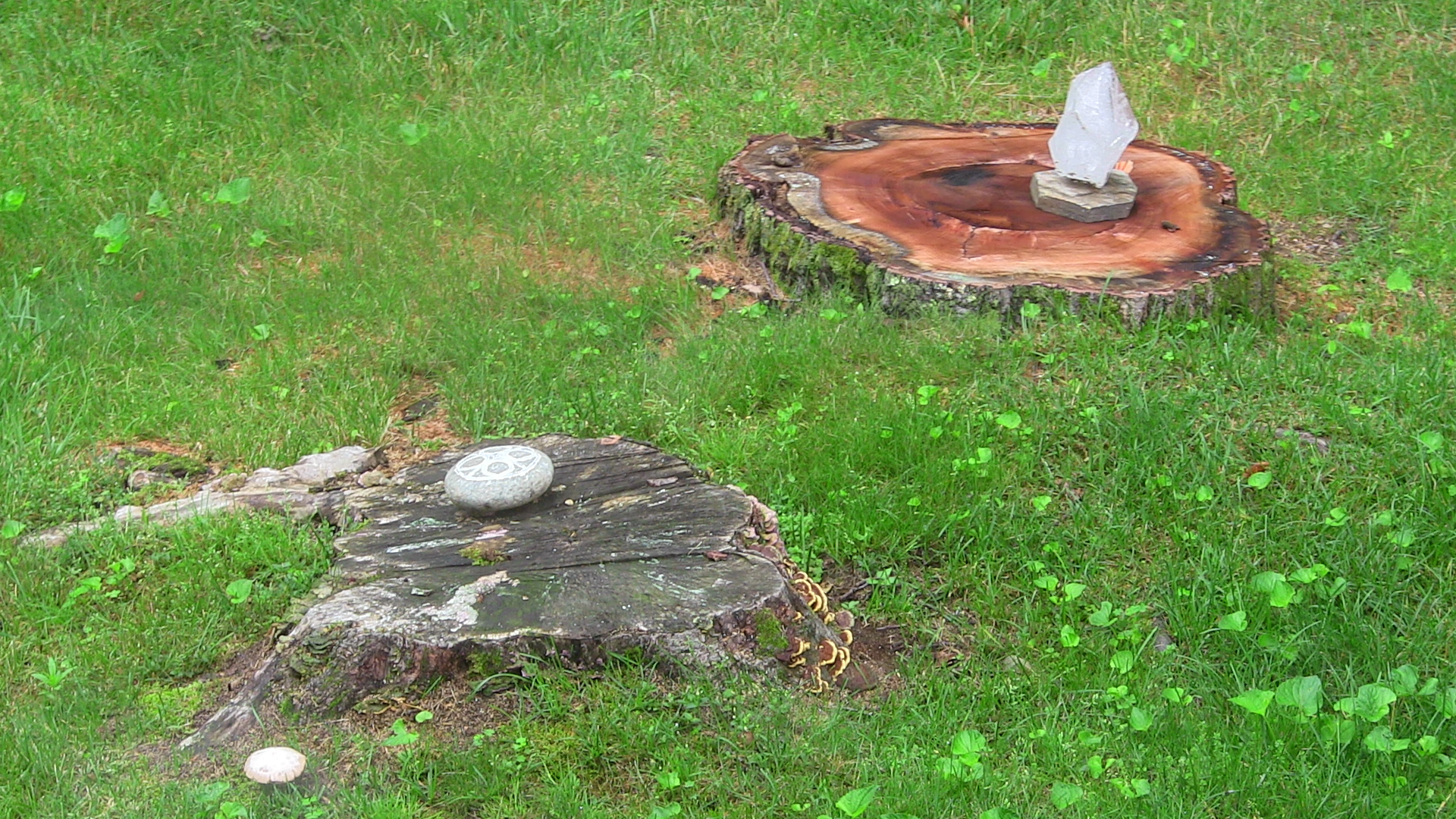
Oh, I almost forgot ... You know that "meaning of life" stuff people
sometimes talk about?
There isn't some "meaning of life" lurking around the corner
somewhere. You make it.
That's right, you create the "meaning of life" with every choice you
make out of your own freedom.
How's that for a bonus?
Please go onward on your journey, with my
best wishes for your immediate success.
Just keep in mind that any help I might be able to personally give,
to the best of my ability, is already on the App, or available
at my bookstore
my website
or my
Youtube Channel
I am then, otherwise engaged in enjoying my retirement.
Don't call. Don't write. Take responsibility for
yourselves.
Joel A. Wendt, social philosopher, and occasional fool.
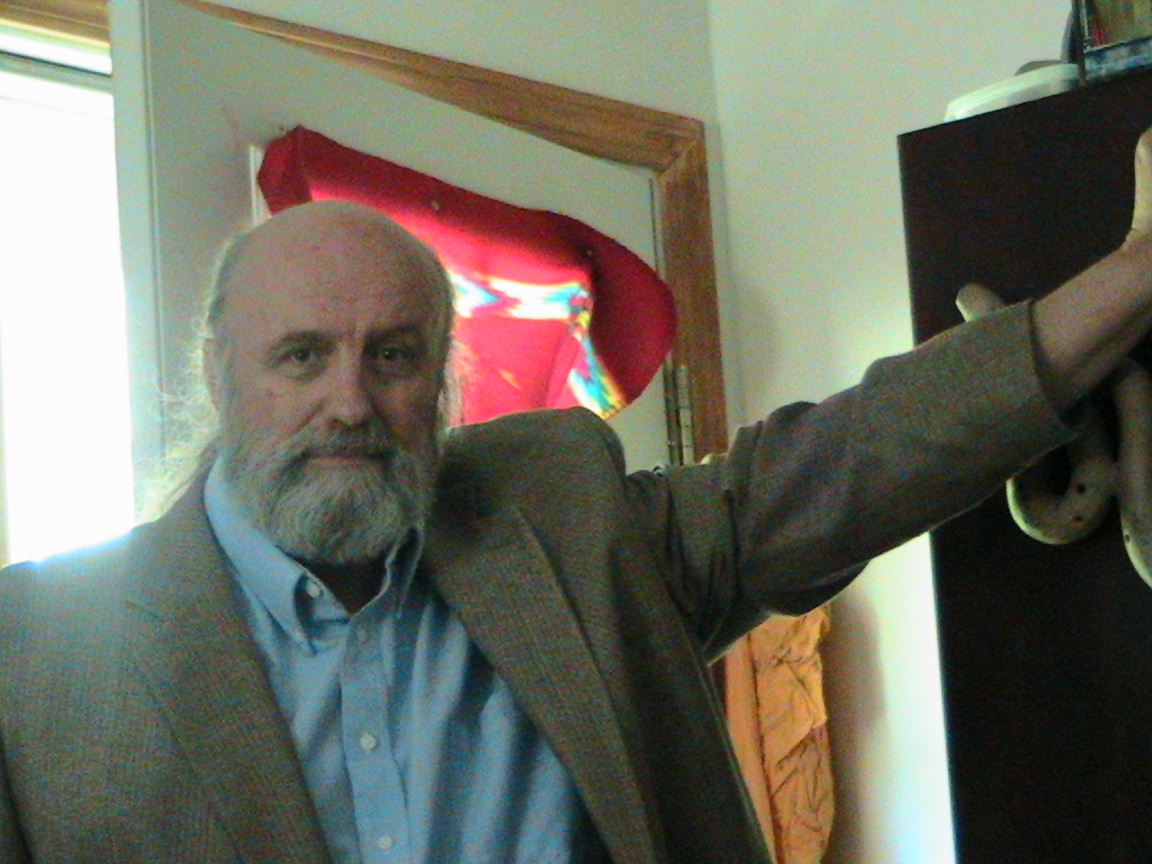
It would be dangerous to think of me as your, or anyone else's
"teacher".
Think about it this Way. You are/in a remarkable playground, and
you see another
child doing something interesting, which you try out for yourself,
and from that learn something interesting. Is that other child
your teacher? Or, are you your own teacher?
What I play with are ideas. That is where what is on this App
comes from - from me "playing".
A child at play is naturally
a poet warrior/sage in action,
possessing infinite wisdom
coupled with the finest feelings of the heart.
At the same time, we don't really
play alone. So while this App is about self-development,
social reality is a We-process not an I-process. Find the ones
You want to play with,
and maybe this App will help You help the whole world to become.
For more on We-processes, go here:
Surfing
the Coming Tsunami of Future History
The Mystery of the Primal Paradox
The Social-Political World - the
arena where human biographies unfold - is simultaneously imperfect and
perfect. From the point of view of Love this World is perfect,
for each single biography is one note in a melody of biographies
involving the same individuality - multiple incarnations often spread
out over great eons of time. Love, existing in Eternity, is able
to oversee all the details and has countless helpers for this
Art. From the point of view of the individual, whose biographies
are experienced in linear time, the world is imperfect. We see
the world as imperfect as an aspect of our yet unfinished, and often
wounded, nature. This "fractured and incomplete seeing" then is
necessary to our choices in life. So we will be aware of the
suffering of others, for example, and feel called to alleviate that
suffering. Or we will feel our own suffering, and seek to heal
that as well. Even the differing ideas, religions, and
other points of view, all belong to those who hold to them. The
individualized world of concepts held by each is necessary for
each. We don't need to think the same, or feel the same, or
believe the same.
{After the
Song, the bartender took out a tarot deck, from behind the bar.
It was wrapped in cloth, and as she unwrapped it she treated it as a
sacred relic.
The ex-lawyer, seeing through the eyes of his avatar - the bartender,
gazed carefully
at the deck, having opened it to the Card "The Devil". As was his
practice,
after re-memorizing it, he closed his eyes and re-created the image in
his imagination. Tarot symbols were a language, that was not to be
read the way words on a page were read - left to right using the
gifts of the intellect. These symbols were read with the
imagination -
with the pictorial capacity of the thinking-mind. One
contemplated the
images as a means of becoming prepared to meet the Beings of the
invisible
world, who spoke to human beings via symbols at the initial
encounters. After
such encounters, these Beings might speak with voices, and then even
later, if one
was ready, they would accept our surrender to their nature, and merge
with us, allowing
us to become as them. The "Devil" card did not foster a meeting
with evil, and was not so
much about good and evil as it was about human weaknesses, and the
chains they create in
the soul. For the ex-lawyer, this was a regular practice, making
himself accept the reality of his own
darkness. This encounter led to a proper humility, which was
fully necessary in order to meet higher
order Beings. While many of his fellow humans felt disfavor
toward the law, his practice was to learn to
see in the Law a reflection of the highest aspirations of human
civilizations. Laws, such as the Constitution,
were one way in which humanity learned to be free of the Gods - by
making social agreements in which all were
bound to the same rules. This was the ideal he strove to express
in all his work in the legal and political spheres:
Our capacity to Consent to being united with each other in a harmony
based upon a self-chosen set of agreed limits.}
- huh? -
The material in this App is based on
the work of many people, not just me. I've taken no money for my
part of this Art. For those who have liked what is here, and may
want to offer some financial remuneration,
here are three links to places that could use additional financing, all
of whom I have relied upon in my own research.
RSF Social Finance
The Nature Institute
Bioneers: revolution from the Heart of Nature
